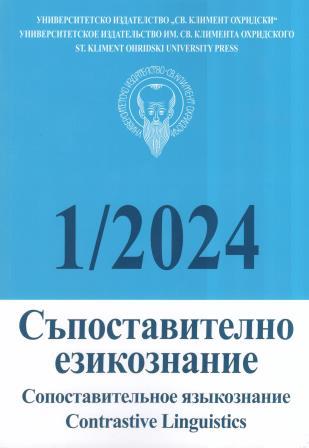Нови употреби на феминативите дама, госпожа, жена и dame, frue, kvinne в българския и норвежкия език
New uses of the feminatives дама, госпожа, жена and dame, frue, kvinne in Bulgarian and Norwegian
Author(s): Ivan Y. TenevSubject(s): Language studies, Language and Literature Studies, Foreign languages learning, Theoretical Linguistics, Comparative Linguistics, Philology, Translation Studies
Published by: Софийски университет »Св. Климент Охридски«
Keywords: Bulgarian language; Norwegian language; feminatives; pragmatic uses; pejorativisation; demonstratives
Summary/Abstract: The article presents a comparative perspective on emerging pragmatic uses of the Bulgarian feminatives дама, госпожа, жена and their Norwegian counterparts dame, frue, kvinne. These new uses manifest in the neutralisation of differential semes such as ‘married’, ‘of high social status’, ‘respectable’; in functional and semantic specialisation; as well as in the development of some pejorative uses. The article outlines the reasons for the new pragmatic uses and the conditions under which they become prominent in speech. Additionally, it examines the use of distal and proximal demonstratives as criteria for establishing pejorative pragmatic uses, and in their pronominal use, as translation equivalents of the feminatives. Microsemantic changes lead to a redistribution of feminatives at the macrosemantic level, whereby Bulgarian дама, госпожа, and Norwegian dame expand their usage, displacing жена and kvinne.
Journal: Съпоставително езикознание / Сопоставительное языкознание
- Issue Year: 2024
- Issue No: 1
- Page Range: 5-35
- Page Count: 31
- Language: Bulgarian
- Content File-PDF

